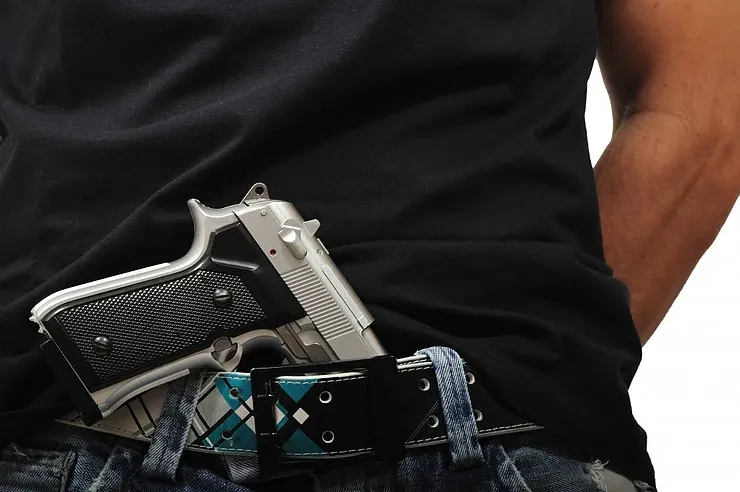Pennsylvania Handgun Laws: A Brief Guide

Anyone in Pennsylvania who owns a handgun, or who seeks to own a handgun, needs a thorough understanding of the relevant firearms laws. A firearms violation can potentially place the offender in serious legal jeopardy. Here is a guide to this important legal issue.
Purchase
Unlike some other states, Pennsylvania state law does not require you to obtain a permit to purchase a handgun. As long as you are at least 18 years old, you are legally permitted to purchase a weapon in most instances. Some exceptions apply, such as persons who have committed a violent crime, are fugitives from justice, or are mentally ill.
Dealer
The law requires you to purchase the handgun through a licensed firearms dealer. Before the purchase is allowed to take place, you must fill out an application and undergo a background check to determine if you are legally allowed to buy the weapon.
In most cases, the background check consists of the gun dealer putting your information into a database called the Pennsylvania Instant Check System (PICS). If the system does not find any issues that would legally prevent you from owning the gun, the purchase is approved.
An important point to note is that if you want to purchase a handgun from a private individual rather than a licensed dealer, you and the seller must go to a licensed dealer to conclude the transfer.
Carry
The laws regarding carrying a handgun vary depending on whether you are openly carrying the weapon or the gun is concealed. If you openly carry the handgun, then you do not need a special permit or license, as long as the gun is clearly visible.
Concealed
If you want to conceal your weapon, such as carrying it in a holster under a jacket, Pennsylvania law requires you to obtain a License to Carry Firearms (LCF). The only exception is when you are a non-resident who has a concealed carry permit from a state that has a reciprocity agreement with Pennsylvania.
Application
Applicants for an LCF must be at least 21 and need to apply at the sheriff's office in their county of residence. The sheriff will either approve or reject your application within 45 days. An LCF is valid for five years.
County Rules
The rules for having an application approved may vary depending on the county in which you apply. For example, some sheriff's offices may require that you have lived in the county for at least 90 days, while others may want more than one form of identification.
Vehicle
An LCF allows you to carry your handgun in a vehicle without any restrictions. If you do not have an LCF and want to transport your weapon in a vehicle, you must follow a specific protocol. You must place the unloaded gun and any ammunition in separate containers.
Prohibited
Pennsylvania statutes prohibit the carrying of handguns into certain locations, regardless of whether you have an LCF. The off-limits areas include parks in Philadelphia, schools, and courthouses.
Any Pennsylvanian handgun owner should be aware that in addition to state laws regarding prohibited locations, federal law also designates a number of off-limit areas where you may not bring a firearm. For example, federal law does not allow firearms in any federal buildings, which includes any building owned leased or rented by the government, post offices, national cemeteries, or military bases.
The handgun laws of Pennsylvania are somewhat complex, and it's easy for a gun owner to end up on the wrong side of the law due to an inadvertent violation. If you ever run afoul of the state’s handgun laws, you should seek proper legal advice and representation from Kalasnik Law Office to successfully litigate your case. Contact us to learn more.